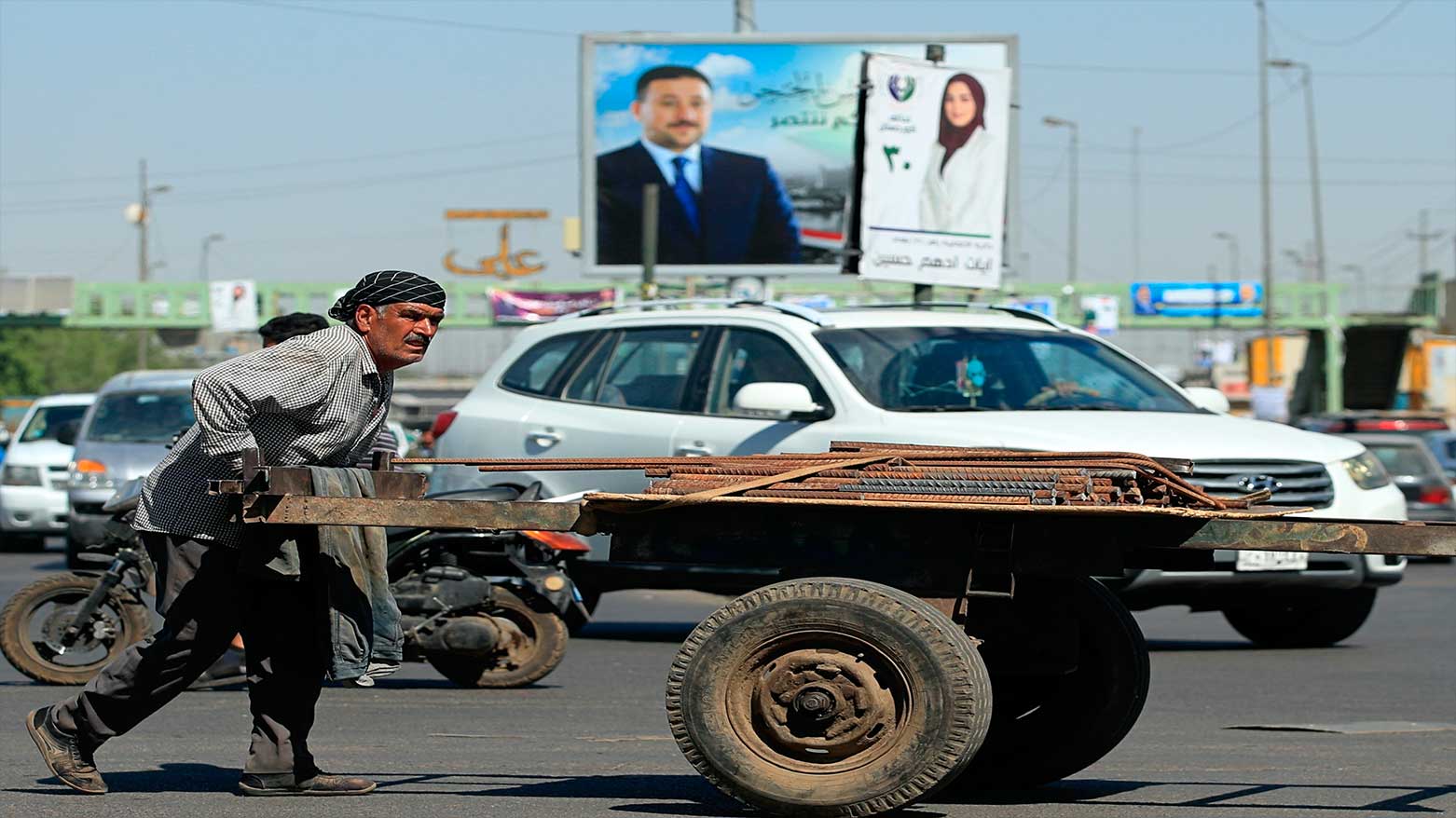Iraq Ranks Second in $12 B Iranian Non-Oil Imports as Iran Expands Economic Grip
Iran’s focus on essential infrastructure projects, control over energy resources, and increasing trade further consolidates its hold on Iraq’s financial and political systems.

ERBIL (Kurdistan24) – Iran has significantly strengthened its economic presence in Iraq, with Iranian exports to its neighboring country reaching a remarkable $12 billion, a development that has raised alarm among international observers.
According to a statement by the Head of the Land Development and Regional Development Department of Iran's Planning and Budget Organization, Seyed Jafar Hosseini, Iran exported 2,200 products to Iraq, contributing to a significant boost in bilateral trade over the last two decades.
Hosseini's remarks were delivered during a meeting titled "Exploring Opportunities and Challenges in Attracting Iraqi Investors and Strengthening Bilateral Trade Relations in Line with Iran’s Role in Regional Value Chains," held on May 27.
The session, attended by representatives from Iran’s Ministry of Foreign Affairs, the Iranian Investment and Economic and Technical Assistance Organization, the Iranian Trade Development Organization, and the Iranian Chamber of Commerce, highlighted key objectives aimed at bolstering trade and business relations between Iran and Iraq.
The most striking revelation from Hosseini was the impressive growth of Iranian exports to Iraq, which have surged 15-fold over the past 20 years. The value of these exports has grown from a modest $600 million in 2003 to over $10 billion in recent years, with the total exports reaching $12 billion as of the last year. Iran is actively pursuing both domestic and foreign investments, particularly from neighboring countries.
According to Hosseini, “Iraq is one of the wealthiest nations in the Middle East, possessing foreign currency reserves amounting to $85 billion, gold reserves of 130 tons, and 147 billion barrels of confirmed oil reserves, ranking fourth globally. Iraq’s oil exports generated $76 billion in 2021, increasing to $120 billion in 2022.” This vast wealth has positioned Iraq as a key partner for Iran, which capitalizes on its economic resources.
Iran’s growing influence in Iraq is not limited to goods exports. Iran has made significant strides in exporting technical engineering services and electricity to Iraq, all part of the broader effort to deepen bilateral trade ties.
Hosseini emphasized the importance of improving the commercial infrastructure of Kermanshah province, a crucial route for Iranian goods to Iraq, and the need to develop business infrastructure to facilitate trade.
In his address, Hosseini also underlined the priority activities Iran has in Iraq, including importing and re-exporting oil through the port of Jask, strengthening Iranian companies’ involvement in Iraq’s oil distribution sector, and creating joint industrial zones along the border. He pointed out that these initiatives not only deepen economic dependence but also create opportunities for job creation in Iraq.
Iraq is Iran’s second-largest non-oil goods export market, with a total of $12 billion worth of exports in the past 11 months, following China at $13.8 billion. Other major export destinations include the UAE, Turkey, Afghanistan, Pakistan, and India.
Iran’s Growing Economic Leverage and U.S. Pressure on Iraq
Iran’s expanding economic influence in Iraq is part of a broader strategy to entrench itself in the country’s political and economic structures. Iraqi leaders, many of whom are perceived to be under Iran’s influence, are facilitating this economic dependence, inadvertently enriching Tehran at the expense of Iraq’s sovereignty.
Iran’s focus on essential infrastructure projects, control over energy resources, and increasing trade further consolidates its hold on Iraq’s financial and political systems.
This trend has not gone unnoticed by the international community, particularly the United States, which has ramped up pressure on Iraq to reduce its reliance on Iran. The Trump administration has made it clear that the U.S. will continue to push Iraq to disentangle itself from Iran’s influence. This includes imposing economic sanctions, curbing financial transactions with Iran, and urging the Iraqi government to implement reforms that would curb Iran’s grip on the country’s resources.
Iraq’s strategic importance in the Middle East makes it a critical area for U.S. foreign policy, and the current administration is keen on ensuring that Iraq does not become a vassal state to Tehran. The pressure on Iraq to reclaim its economic independence is a direct response to Iran’s attempts to use Iraq’s financial assets for its benefit, all while Iraq’s leaders remain complicit in this arrangement.
In conclusion, while the growing economic ties between Iran and Iraq may benefit Iran in the short term, they come at a significant cost to Iraq’s sovereignty and future stability. As the U.S. continues its efforts to sever Iraq’s dependence on Tehran, the future of Iraq’s economy will likely hinge on its ability to reclaim control over its resources and assert its independence on the global stage.
The relationship between Iran and Iraq has long been marked by both economic and political complexities, with Iran reaping substantial benefits from its growing economic foothold in Iraq. However, this has left Iraq vulnerable to external influence, particularly from Tehran, which continues to deepen its control over Iraq’s political, economic, and military sectors.
This situation is part of a broader U.S. strategy to curb Iran’s influence across the Middle East, a policy that began with efforts to limit Tehran’s sway in Lebanon and Syria and now extends to Iraq. The U.S. has repeatedly conveyed to Iraqi leadership, through both Prime Minister Mohammed Shia' Al-Sudani and Foreign Minister Fuad Hussein, that failure to align with this policy would come at a significant cost.
If Iraq does not take decisive steps to reduce Iran’s grip on its sovereignty, it risks losing U.S. support. In such a scenario, Iraqi militia leaders loyal to Iran, who are actively undermining Iraq’s independence, would likely become targets of U.S. and Israeli military strikes. The future of Iraq’s sovereignty and regional stability hinges on its ability to regain control from Iranian influence, implement essential reforms, and restore its economic independence.
